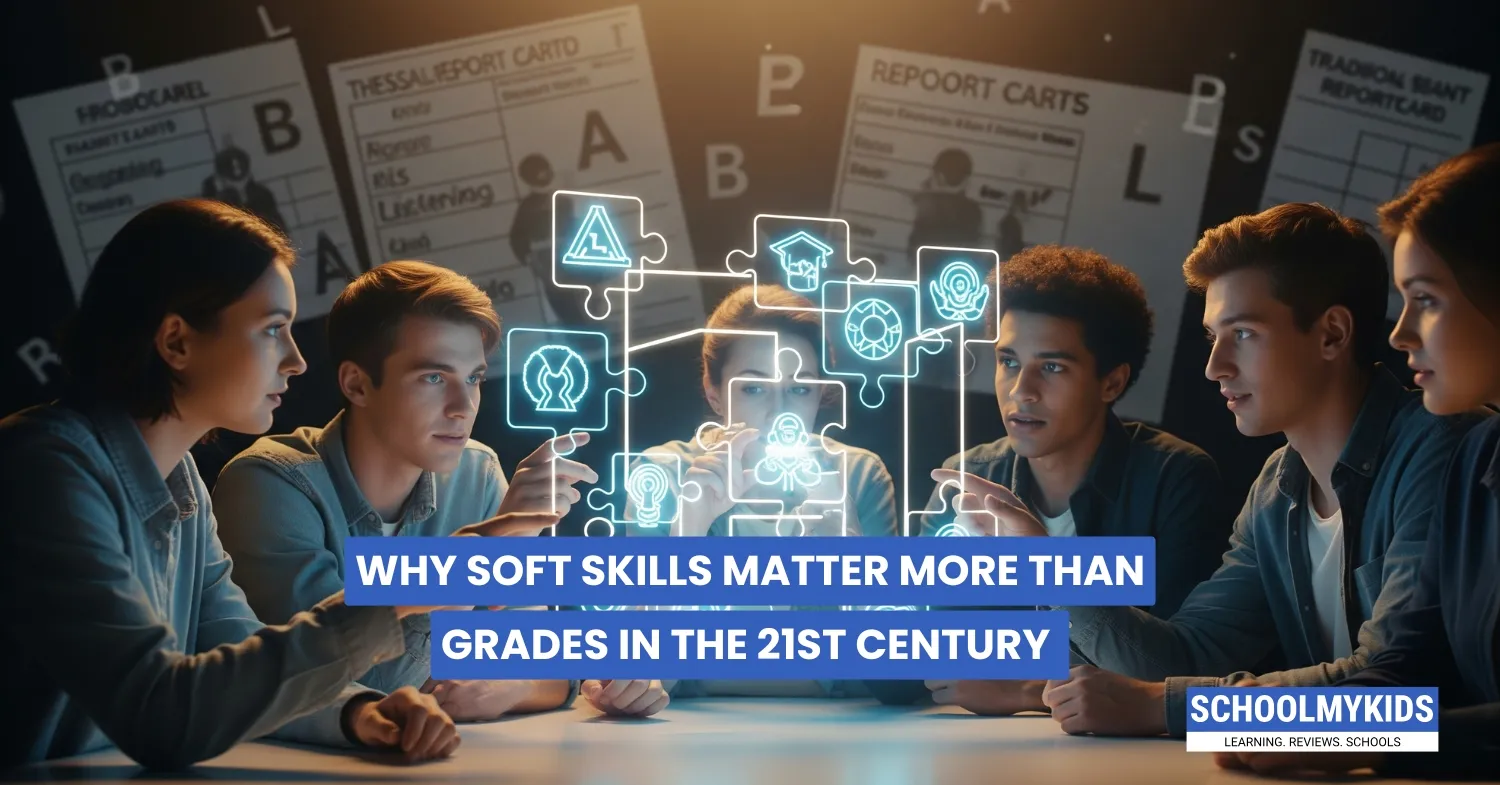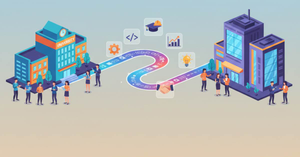That 4.0 GPA you're chasing? It might get you through the college admission door, but it won't necessarily land you the job you want or keep you there. The world has changed, and so has what employers actually care about.
Right now, while you're stressing about that B+ in chemistry, companies are desperately hunting for people who can think on their feet, work with others without drama, and adapt when everything changes overnight. Critical thinking and technological literacy top the list of skills employers believe will grow in prominence in the next five years.
The Great Disconnect: What Schools Teach vs. What Jobs Need
There's a direct disconnect between education and employability. Universities and colleges control access to the job market, but they're teaching skills that don't match what workplaces actually need. Educational institutions focus on academic achievement while employers desperately search for practical capabilities that schools barely address.
Your school is still measuring you the same way they did decades ago, through tests, grades, and memorization. But the job market? It has moved on. Companies are dealing with remote teams, AI integration, constant change, and complex human dynamics that no textbook can teach.
This sole focus on grades and test scores has huge negative consequences. It fuels student anxiety and stress and creates a culture of fear rather than a love of learning.
The Soft Skills That Will Actually Matter in Your Career
Here are some soft skills that are not just “good to have” but are necessary for the future.
#1. Conflict Resolution and Emotional Navigation
Conflict mitigation is very important due to changing workplace dynamics. Why? Because people are working remotely, across time zones, with different backgrounds and communication styles. The ability to handle disagreements, misunderstandings, and tensions isn't just nice to have; it's essential.
- How to build this: Practice having difficult conversations with friends and family. When there's a group project conflict, don't just complain about it; try to mediate. Join clubs where you have to work through differences of opinion.
#2. Adaptive Problem-Solving
Technology changes every six months. Job roles evolve constantly. The problems you'll solve in your career don't exist yet. Candidates and employees need soft skills like adaptability, creative and analytical thinking, because rigid thinking gets you left behind.
This isn't about being smart enough to solve today's problems; it's about being flexible enough to tackle tomorrow's challenges that nobody has seen before.
- How to build this: Stop looking for the "right" answer in every situation. Start asking "What if?" more often. Take on projects outside your comfort zone. When plans change, practice finding opportunity instead of getting frustrated.
#3. Cross-Cultural Communication
Your future workplace will likely include people from different countries, generations, and backgrounds. Soft skills like communication, adaptability, and emotional intelligence are important for collaboration and innovation in increasingly remote and diverse workplaces.
This goes beyond being polite. It's about understanding different communication styles, working across time zones, and building relationships without face-to-face interaction.
- How to build this: Engage with people different from you, not just different races or nationalities, but different ages, interests, and perspectives. Practice explaining complex ideas simply. Learn to read between the lines in digital communication.
#4. Systems Thinking
Most problems in the real world aren't isolated. They're connected to other problems, people, and processes. The ability to see the big picture while managing details is becoming important as everything gets more interconnected.
- How to build this: Instead of just solving homework problems, think about why the problem exists and what happens after you solve it. In group projects, consider how your part affects everyone else's work.
#5. Digital Fluency (Beyond Basic Tech Skills)
This isn't about knowing how to use Excel. It's about understanding how digital tools can solve human problems, how to learn new technologies quickly, and how to work effectively in digital-first environments.
- How to build this: Don't just use apps; understand why they work the way they do. Try building something digital, even if it's simple. Pay attention to how technology affects human behavior and relationships.
Why Grades Still Matter (Just Not the Way You Think)
We are not saying grades are worthless. They still serve purposes:
- They show you can follow through on commitments.
- They show basic subject mastery.
- They're often required for certain opportunities.
- They reflect discipline and time management.
Always remember that grades measure your ability to succeed in an artificial academic environment. Soft skills measure your ability to succeed in the real world.
The Reality Check: What Your Future Self Will Thank You For
Five years from now, you won't remember most of what you memorized for tests. But you will use the ability to build relationships, navigate conflict, adapt to change, and think creatively every single day.
The students who figure this out early don't just get better jobs; they enjoy their careers more, handle stress better, and have more opportunities throughout their lives. They become the people others want to work with, promote, and recommend.
Companies can teach you their specific processes and tools. They can't teach you how to be someone others trust and respect. They can't teach you how to stay calm under pressure or how to see solutions others miss.
Conclusion
The future belongs to people who can handle complexity, work with others, and adapt to constant change. Grades can open doors, but soft skills determine what you do once you're inside.
Your GPA gets you to the interview. Your soft skills get you the job, keep you there, and help you thrive. Choose to develop both, but never forget which one will actually shape your life.









Be the first one to comment on this story.